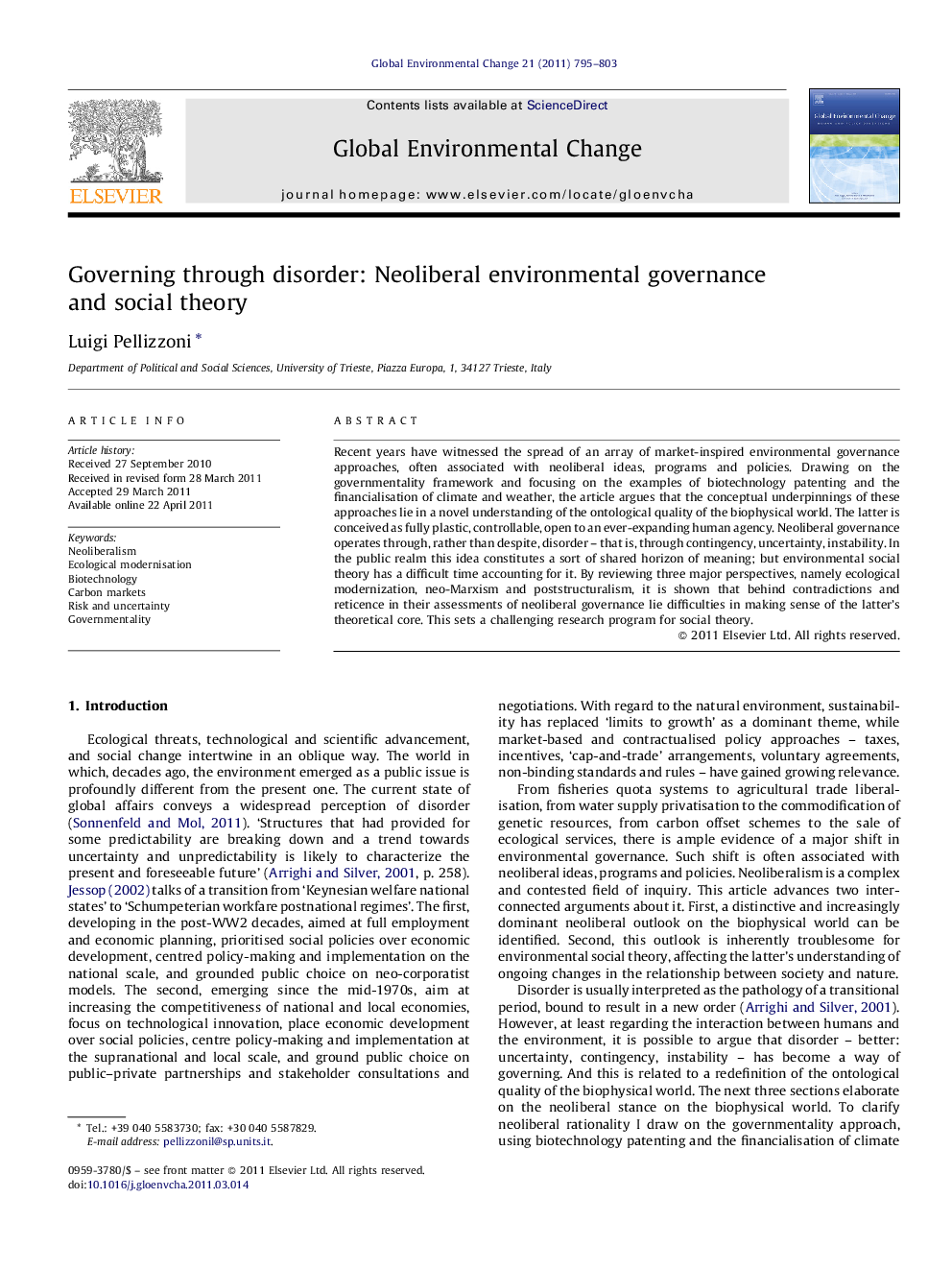| Article ID | Journal | Published Year | Pages | File Type |
|---|---|---|---|---|
| 1054723 | Global Environmental Change | 2011 | 9 Pages |
Recent years have witnessed the spread of an array of market-inspired environmental governance approaches, often associated with neoliberal ideas, programs and policies. Drawing on the governmentality framework and focusing on the examples of biotechnology patenting and the financialisation of climate and weather, the article argues that the conceptual underpinnings of these approaches lie in a novel understanding of the ontological quality of the biophysical world. The latter is conceived as fully plastic, controllable, open to an ever-expanding human agency. Neoliberal governance operates through, rather than despite, disorder – that is, through contingency, uncertainty, instability. In the public realm this idea constitutes a sort of shared horizon of meaning; but environmental social theory has a difficult time accounting for it. By reviewing three major perspectives, namely ecological modernization, neo-Marxism and poststructuralism, it is shown that behind contradictions and reticence in their assessments of neoliberal governance lie difficulties in making sense of the latter's theoretical core. This sets a challenging research program for social theory.
► Neoliberalism revolutionises social organization vis-à-vis its biophysical underpinnings. ► Its hallmark is government through, rather than despite, uncertainty or disorder. ► Biotechnology patenting and the financialisation of climate and weather provide major examples of neoliberal environmental governance. ► The combination of post-and hyper-modernist traits is troublesome for social theory. ► Social theory has to confront the entrepreneurial agent that represents the theoretical engine of neoliberalism.
